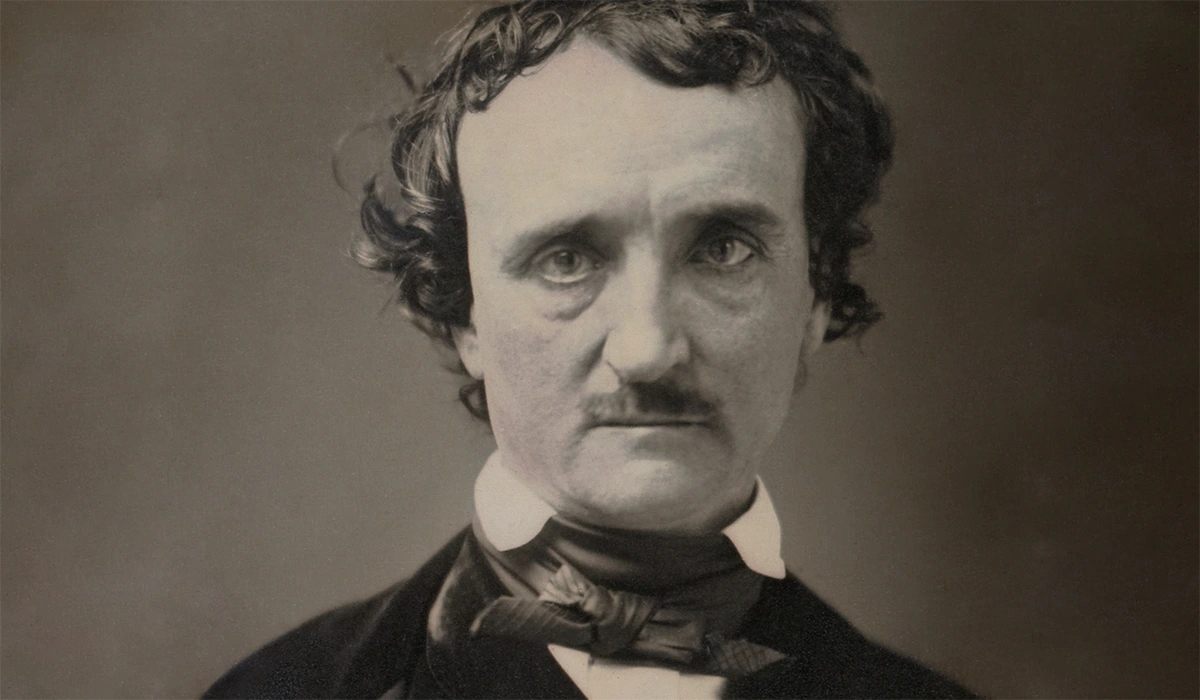The Mysterious Death of Edgar Allan Poe: Dead at Just 40
Given Poe’s troubled life, his early death shocked few—but how he died remains a mystery, with theories ranging from alcohol and illness to a bizarre voter fraud scheme called ‘cooping.’

Edgar Allan Poe remains one of America’s most influential literary figures, best known for his dark, atmospheric tales of horror and suspense. Stories like “The Black Cat,” “The Cask of Amontillado,” and “The Tell-Tale Heart” have captivated readers for generations with their psychological intensity and chilling twists. His poetry, equally haunting and musical, includes poems such as “Lenore,” “The Raven,” and “Annabel Lee.”
Born in 1809 in Boston, Poe faced tragedy early in life. After losing both parents by the age of three—his mother to tuberculosis in 1811—he was taken in by John Allan, a wealthy merchant from Richmond, Virginia. Although never officially adopted, Poe took Allan’s name as his middle name, though their relationship later grew strained.
Though famous today, Poe’s life was marked by instability. He struggled with poverty for most of his career, often clashing with publishers and living on the edge of financial ruin. His personal life brought even more turmoil—he married his 13-year-old cousin, Virginia Clemm, who later died of tuberculosis after a long illness. Her death devastated him.
Poe also battled alcoholism and possibly depression, with several documented periods of erratic behavior. He had a reputation for intense mood swings, strained relationships, and self-destructive habits, including public outbursts that damaged his reputation in literary circles.
Despite his literary success, Poe struggled financially for most of his life—and in 1849, he died under mysterious circumstances.
The Unsolved Death of Edgar Allan Poe
In early October 1849, Edgar Allan Poe was found delirious and disoriented outside a bar on Lombard Street in Baltimore, dressed in someone else’s worn-out clothes. Witnesses described him as disheveled and incoherent, unable to explain what had happened to him. He was taken to Washington College Hospital, where his condition quickly worsened.
By the next day, he was slipping in and out of consciousness, sweating heavily, and shouting at imaginary companions. Poe never regained clarity and died just days later, on October 7, at the age of 40.
For more than 170 years, historians and fans alike have tried to piece together what really happened. Several theories have emerged—some more plausible than others:
1. Alcohol Poisoning or Withdrawal
Poe’s struggles with alcohol are well-documented, and many believed he simply drank himself to death. Some suggest it wasn’t just alcohol, but possible poisoning or withdrawal that killed him.
2. Cooping
One of the strangest and most widely accepted theories claims Poe was a victim of “cooping”—a voter fraud scheme where gangs kidnapped men, forced them to vote multiple times under different identities, and often left them beaten or worse.
3. Rabies or Other Illnesses
Medical experts have proposed that Poe may have died from untreated illnesses such as rabies, tuberculosis, or even brain swelling (encephalitis). His symptoms reportedly matched some of these conditions.
4. Foul Play or Mugging
Some speculate that Poe was beaten or robbed, explaining his battered state and the fact that he was found wearing ill-fitting, secondhand clothes.
5. Heart Disease or Stroke
Poe’s health had been fragile for years, leading some to believe he suffered a sudden medical event like a stroke or heart failure.
Despite these theories, no official cause of death was ever recorded.
Quotes
""I have no faith in human perfectability. I think that human exertion will have no appreciable effect upon humanity. Man is now only more active - not more happy - nor more wise, than he was 6000 years ago."
Edgar Allan Poe
""If you wish to forget anything on the spot, make a note that this thing is to be remembered."
Edgar Allan Poe
""The ninety and nine are with dreams, content but the hope of the world made new, is the hundredth man who is grimly bent on making those dreams come true."
Edgar Allan Poe
""A strong argument for the religion of Christ is this - that offences against Charity are about the only ones which men on their death-beds can be made - not to understand - but to feel - as crime."
Edgar Allan Poe
""In criticism I will be bold, and as sternly, absolutely just with friend and foe. From this purpose nothing shall turn me."
Edgar Allan Poe